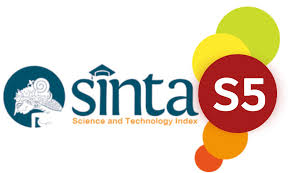Students’ Opinion on English Group Discussion to Improve Collaboration Skill
DOI:
https://doi.org/10.37253/iallteach.v5i1.7650Keywords:
English Group Discussion, Collaboration, Skill.Abstract
Collaboration skills are one of the skills that are emphasized in 21st century learning where students are asked to be able to cooperate well in facing and overcoming problems that arise in learning, including when learning English. Collaboration skills in learning English enable students to be able to work together in helping and overcoming problems encountered when learning English. Therefore, this study aims to find out students' opinions on English group discussions to improve collaboration skills in learning English. The method used in this research is to use qualitative through a descriptive approach. The sample used in this study consisted of 36 students who were learning English. Data was collected through observation and interviews to determine students' perceptions of the English group discussion method in improving collaboration skills. After the data is collected, the data is analyzed through three stages, namely data reduction, data display and data conclusion. The results showed that some students had a good and positive interest in increasing collaboration skills using the English group discussion method. In fact, students tend to be able to do their best in doing English assignments by collaborating and studying together so that there is an increase in English achievement.
Downloads
References
Arja, S. B., Ponnusamy, K., Kottathveetil, P., Ahmed, T. F. A., Fatteh, R., & Arja, S. B. (2020). Effectiveness of small group discussions for teaching specific pharmacology concepts. Medical Science Educator, 30(2), 713–718. https://doi.org/10.1007/s40670-020-00938-9
Cresswell. (2013). Research design: Qualitative, quantitative, and mixed methods approaches. Sage Publication.
Gusta, W., Christina, D., & Zakirman, Z. (2020). Improved student collaboration skills on English learning using jigsaw models. International Journal Of Scientific and Technology Research, 9, 3.
Hussin, R. A., Gani, S. A., & Muslem, A. (2020). The use of Youtube media through group discussion in Teaching speaking. English Education Journal, 11(1).
Jung, T., Seung, L., Ha, Y., Ting, W., Ying, L., Chiu, J., & Ru, Y. (2019). Effects of collaborative small ‑ group discussions on early adolescents ’ social reasoning. Reading and Writing, 0123456789. https://doi.org/10.1007/s11145-019-09946-7
Miles, M. B., Huberman, A. M., & Saldana, J. (2013). Qualitative data analysis: A methods sourcebook. Sage Publications Incorporated. https://doi.org/https://doi.org/10.1080/10572252.2015.975966
Prayudha, J., S. (2023a). An Analysis of Students ’ Barriers in Implementing English Presentations and Online Discussions in ELT Classroom. 3(2), 112–119.
Prayudha, J., S. (2023b). The analysis of English teacher barriers on teaching English through Kahoot: Elt teacher experience, 5(1), 118–128.
Sari, K. A., Prasetyo, Z. K., & Wibowo, W. S. (2017). Development of science student worksheet based on project based learning model to improve collaboration and communication skills of junior high school student. Journal of Science Education Research, 1(1).
Sugiyono. (2014). Memahami Penelitian Kualitatif. Alfabeta.
Widyastuti, N. W. S. (2022). The implementation of HOTS-based English learning in junior high School during online classes. Journal of Educational Study, 2(3), 215–225. https://doi.org/10.36663/joes.v2i3.381
Williams, A. T., & Svensson, M. (2020). Student teachers’ collaborative learning of science in small-group discussions. Scandinavian Journal of Educational Research, 1–14. https://doi.org/10.1080/00313831.2020.1788141




.png)






